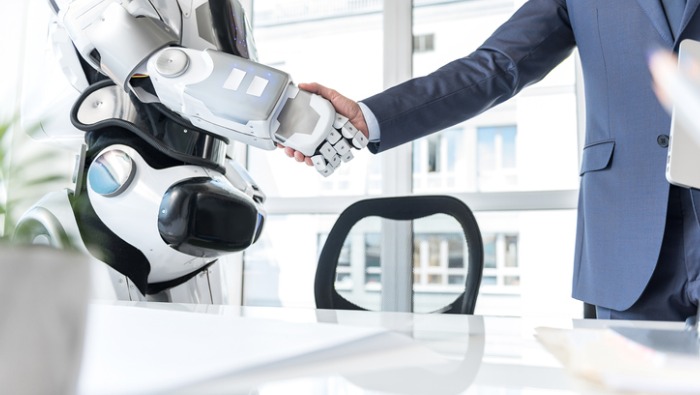This month, the U.S. Congress posted the full text of a recent bill to regulate artificial intelligence (AI) and automated decision systems in employment. The bill, currently dubbed the “No Robot Bosses Act,” proposes federal restrictions regarding an employer’s use of automated decision-making tools, including those that don’t necessarily use machine learning or AI. As AI and automated decision systems continue to find roles in the workplace, the Equal Employment Opportunity Commission (EEOC) has started cracking down on cases of AI-related discrimination. Earlier this month, the EEOC filed a notice of settlement and request for a consent decree in its first AI discrimination case.
Background of the Bill
As AI continues to improve and proliferate year after year, more employers are beginning to use the technology in the workplace. In January 2023, EEOC Chair Charlotte Burrows reported that “83% of employers” and “99% of Fortune 500 companies” now rely on AI for employment decisions in some capacity. Data from previous EEOC reports show that those numbers continue to grow yearly since 2021.
Specifically, automated decision systems in an employment context use data, machines, and algorithms to make automatic hiring, firing, promotion, and other employment decisions with varying degrees of human oversight or intervention. Such systems may involve computations, machine learning, statistical modeling, data analytics, or AI. Unfortunately, these automated decision systems, left unchecked, run the risk of discriminating against one or more protected classes. Earlier, senators in Pennsylvania and Hawaii released a two-page fact sheet on their proposed bill to regulate automated decision systems in the workplace.
Proposed Bill to Regulate Automated Decision Systems
The proposed bill offers a similarly broad definition of automated decision systems. It includes systems that use computation, at least in part, to produce outcomes, make or aid in decision-making, inform policies, and collect data. Notably, the bill does not limit these systems to only those that specifically use machine learning or AI. However, the proposed bill would exclude “passive” systems that do not automatically influence decisions. The proposed legislation would cover employers “engaged in commerce or in any industry or activity affecting commerce who employ, or otherwise engage for the performance of work for remuneration, 11 or more covered individuals,” as well as specific government agencies. Protected individuals would include applicants, employees, and even independent contractors.
Requirements Under the No Robot Bosses Act
If enacted, the proposed bill would mandate certain responsibilities for employers that use automated decision systems for candidate selection, interviewing, hiring, firing, scheduling, compensation, benefits, promotions, and discipline. In general, the proposed bill would prohibit employers from relying only on these systems in decision-making without human involvement. Among other requirements, the proposed legislation includes the following:
- requirements for employers to train individuals who operate automated decision systems;
- whistleblower protections and prohibitions against retaliation for individuals that file a complaint under the law;
- invalidation of arbitration agreements with respect to AI discrimination claims; and
- required independent audits of automated decision systems and their decision outputs.
Additionally, the proposed bill would require pre-development testing and validation to ensure the system’s compliance with equal employment opportunity laws. Employers would also need to provide initial disclosure before using the system to make an employment decision, as well as a notice within seven days of a decision. Under the bill, covered individuals could recover damages ranging from $5,000 to $100,000 per violation. Finally, the bill would create the Technology and Worker Protection Division in the Department of Labor (DOL) to investigate claims and enforce the law.

